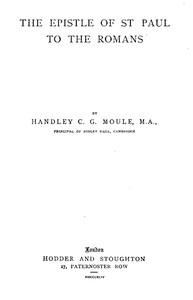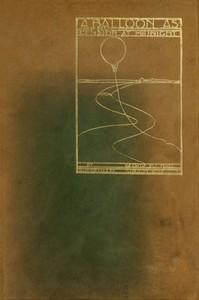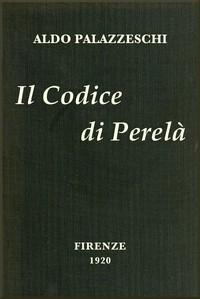Read this ebook for free! No credit card needed, absolutely nothing to pay.
Words: 133872 in 26 pages
This is an ebook sharing website. You can read the uploaded ebooks for free here. No credit cards needed, nothing to pay. If you want to own a digital copy of the ebook, or want to read offline with your favorite ebook-reader, then you can choose to buy and download the ebook.


: The Expositor's Bible: The Epistle of St Paul to the Romans by Moule H C G Handley Carr Glyn Nicoll W Robertson William Robertson Sir Editor - Bible. Romans Commentaries
It is the month of February, in the year of Christ 58. In a room in the house of Gaius, a wealthy Corinthian Christian, Paul the Apostle, having at his side his amanuensis Tertius, addresses himself to write to the converts of the mission at Rome.
The great world meanwhile is rolling on its way. It is the fourth year of Nero; he is Consul the third time, with Valerius Messala for his colleague; Poppaea has lately caught the unworthy Prince in the net of her bad influence. Domitius Corbulo has just resumed the war with Parthia, and prepares to penetrate the highlands of Armenia. Within a few weeks, in the full spring, an Egyptian impostor is about to inflame Jerusalem with his Messianic claim, to lead four thousand fanatics into the desert, and to return to the city with a host of thirty thousand men, only to be totally routed by the legionaries of Felix. For himself, the Apostle is about to close his three months' stay at Corinth; he has heard of plots against his life, and will in prudence decline the more direct route from Cenchrea by sea, striking northward for Philippi, and thence over the AEgaean to Troas. Jerusalem he must visit, if possible before May is over, for he has by him the Greek collections to deliver to the poor converts of Jerusalem. Then, in the vista of his further movements, he sees Rome, and thinks with a certain apprehension yet with longing hope about life and witness there.
A Greek Christian woman is about to visit the City, Phoebe, a ministrant of the mission at Cenchrea. He must commend her to the Roman brethren; and a deliberate Letter to them is suggested by this personal need.
Besides, he has been hearing about the actual state of that all-important mission. As "all roads led to Rome," so all roads led from Rome, and there were Christian travellers everywhere who could tell him how the Gospel fared among the metropolitan brethren. As he heard of them, so he prayed for them, "without ceasing" , and made request too for himself, now definitely and urgently, that his way might be opened to visit them at last.
To pray for others, if the prayer is prayer indeed, and based to some extent on knowledge, is a sure way to deepen our interest in them, and our sympathetic insight into their hearts and conditions. From the human side, nothing more than these tidings and these prayers was needed to draw from St Paul a written message to be placed in Phoebe's care. From this same human side again, when he once addressed himself to write, there were circumstances of thought and action which would naturally give direction to his message.
Another question had been pressing the Apostle's mind, and that for years, but recently with a special weight. It was the mystery of Jewish unbelief. Who can estimate the pain and greatness of that mystery in the mind of St Paul? His own conversion, while it taught him patience with his old associates, must have filled him also with some eager hopes for them. Every deep and self-evidencing manifestation of God in a man's soul suggests to him naturally the thought of the glorious things possible in the souls of others. Why should not the leading Pharisee, now converted, be the signal, and the means, of the conversion of the Sanhedrin, and of the people? But the hard mystery of sin crossed such paths of expectation, and more and more so as the years went on. Judaism outside the Church was stubborn, and energetically hostile. And within the Church, sad and ominous fact, it crept in underground, and sprung up in an embittered opposition to the central truths. What did all this mean? Where would it end? Had Israel sinned, collectively, beyond pardon and repentance? Had God cast off His people? These troublers of Galatia, these fiery rioters before the tribunal of Gallio at Corinth, did their conduct mean that all was over for the race of Abraham? The question was agony to Paul; and he sought his Lord's answer to it as a thing without which he could not live. That answer was full in his soul when he meditated his Letter to Rome, and thought of the Judaists there, and also of the loving Jewish friends of his heart there who would read his message when it came.
Thus we venture to describe the possible outward and inward conditions under which the Epistle to the Romans was conceived and written. Well do we recollect that our account is conjectural. But the Epistle in its wonderful fulness, both of outline and of detail, gives to such conjectures more than a shadow for basis. We do not forget again that the Epistle, whatever the Writer saw around him or felt within him, was, when produced, infinitely more than the resultant of Paul's mind and life; it was, and is, an oracle of God, a Scripture, a revelation of eternal facts and principles by which to live and die. As such we approach it in this book; not to analyse only or explain, but to submit and to believe; taking it as not only Pauline but Divine. But then, it is not the less therefore Pauline. And this means that both the thought and the circumstances of St Paul are to be traced and felt in it as truly, and as naturally, as if we had before us the letter of an Augustine, or a Luther, or a Pascal. He who chose the writers of the Holy Scriptures, many men scattered over many ages, used them each in his surroundings and in his character, yet so as to harmonize them all in the Book which, while many, is one. He used them with the sovereign skill of Deity. And that skilful use meant that He used their whole being, which He had made, and their whole circumstances, which He had ordered. They were indeed His amanuenses; nay, I fear not to say they were His pens. But HE is such that He can manipulate as His facile implement no mere piece of mechanism, which, however subtle and powerful, is mechanism still, and can never truly cause anything; HE can take a human personality, made in His own image, pregnant, formative, causative, in all its living thought, sensibility, and will, and can throw it freely upon its task of thinking and expression--and behold, the product will be His; His matter, His thought, His exposition, His Word, "living and abiding for ever."
Thus we enter in spirit the Corinthian citizen's house, in the sunshine of the early Greek spring, and find our way invisible and unheard to where Tertius sits with his reed-pen and strips of papyrus, and where Paul is prepared to give him, word by word, sentence by sentence, this immortal message. Perhaps the corner of the room is heaped with hair-cloth from Cilicia, and the implements of the tent-maker. But the Apostle is now the guest of Gaius, a man whose means enable him to be "the host of the whole Church"; so we may rather think that for the time this manual toil is intermitted. Do we seem to see the form and face of him who is about to dictate? The mist of time is in our eyes; but we may credibly report that we find a small and much emaciated frame, and a face remarkable for its arched brows and wide forehead, and for the expressive mobility of the lips. We trace in looks, in manner and tone of utterance, and even in unconscious attitude and action, tokens of a mind rich in every faculty, a nature equally strong in energy and in sympathy, made both to govern and to win, to will and to love. The man is great and wonderful, a master soul, subtle, wise, and strong. Yet he draws us with pathetic force to his heart, as one who asks and will repay affection.
As we look on his face we think, with awe and gladness, that with those same thought-tired eyes he has literally seen, only twenty years ago, so he will quietly assure us, the risen and glorified JESUS. His work during those twenty years, his innumerable sufferings, above all, his spirit of perfect mental and moral sanity, yet of supernatural peace and love,--all make his assurance absolutely trustworthy. He is a transfigured man since that sight of Jesus Christ, who now "dwells in his heart by faith," and uses him as the vehicle of His will and work. And now listen. The Lord is speaking through His servant. The scribe is busy with his pen, as the message of Christ is uttered through the soul and from the lips of Paul.
ROMANS i. 1-7
Meanwhile, this bondservant-apostle, because "under authority," carries authority. His MASTER has spoken to him, that he may speak. He writes to the Romans as man, as friend, but also as the "vessel of choice, to bear the Name" of Jesus Christ.
In this, as in other things, His glorious Figure is unique. There is no other personage in human history, himself a moral miracle, heralded by a verifiable foreshadowing in a complex literature of previous centuries.
Free books android app tbrJar TBR JAR Read Free books online gutenberg
More posts by @FreeBooks

: A Balloon Ascension at Midnight by Hall George Eli Ross Gordon Illustrator - Balloon ascensions Fiction


: Il codice di Perelà by Palazzeschi Aldo - Science fiction; Fantasy fiction; Adventure stories; Italian fiction 20th century IT Romanzi


: Suuri rikos by Kaatra K Ssi - Finnish fiction 20th century; Finland History Revolution 1917-1918 Fiction




